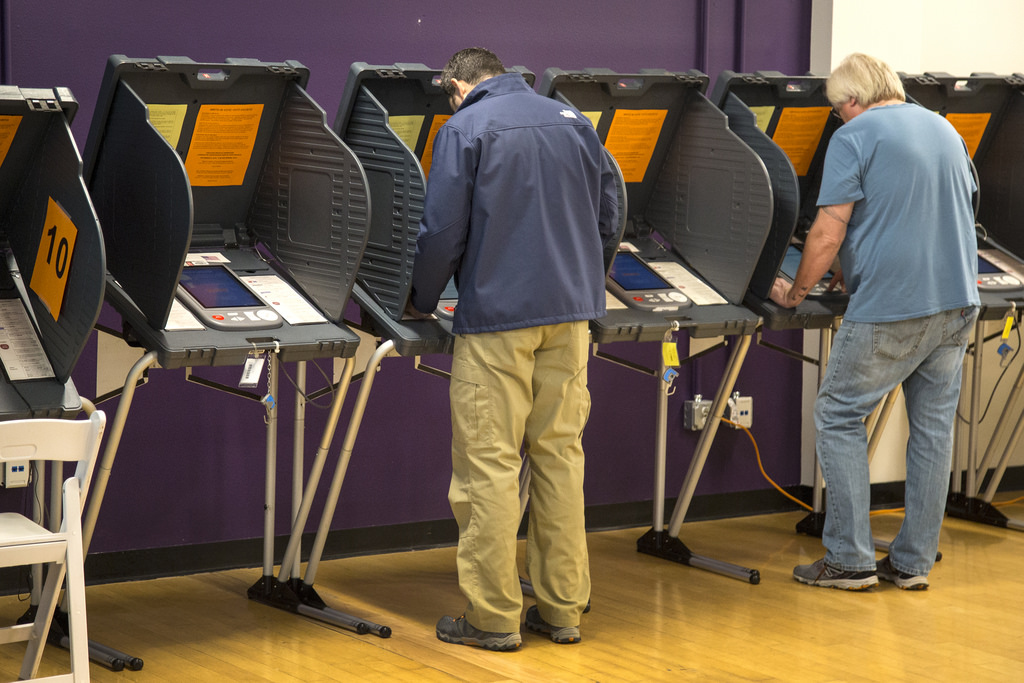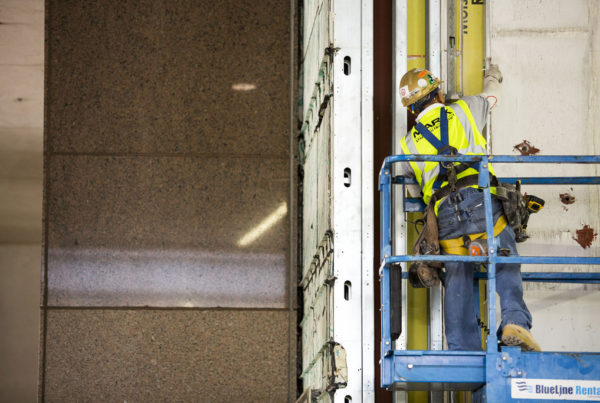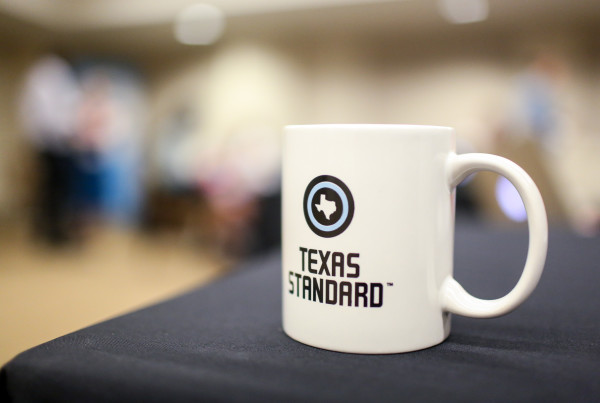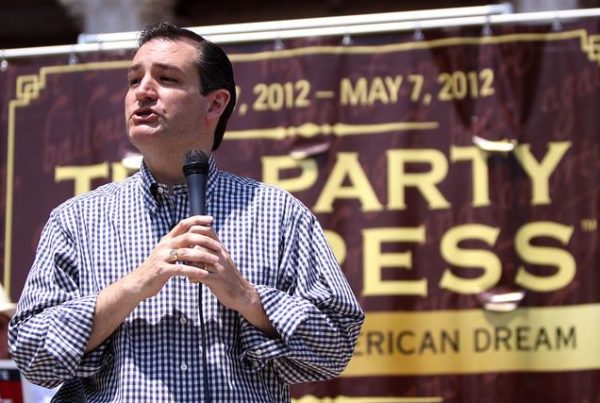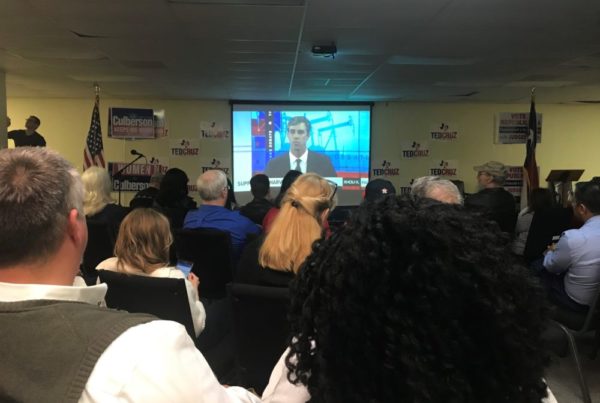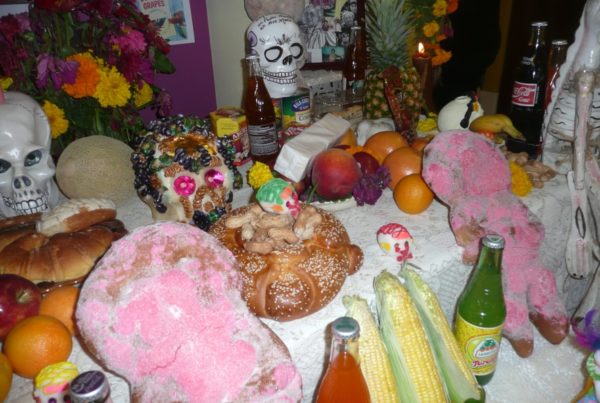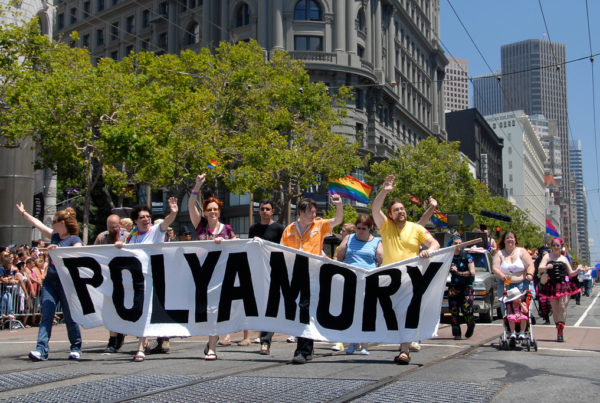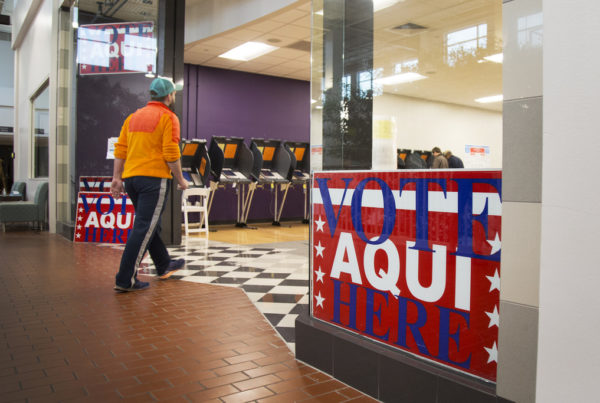The Standard’s news roundup gives you a quick hit of interesting, sometimes irreverent, and breaking news stories from all over the state.
Korean American groups in Houston are raising concerns about the availability of translation services when voting. They met with Harris County officials early this week to try to find a solution before Election Day on Tuesday, November 6.
Sang Shin, an immigration attorney and president of the Asian American Bar Association in Houston, says this all started with an effort to turn out Korean American voters this past Sunday, October 28. The Korean American Voters League advertised in a local Korean-language publication that translators would be available to help anyone who needed it at the Trini Mendenhall Community Center, a polling location in Spring Branch.
“And so it was really an issue of trying to mobilize and get people comfortable voting, and it obviously attracted a lot of Korean American voters who wanted to come and participate in their civic duties – some of these individuals may have never voted before,” Shin says.
But election workers ended up barring the translators from the polling place. They said they were loitering and needed to stand outside of a 100-foot buffer zone. Shin says he understands election workers are just trying to do their jobs, but feels the law doesn’t support their decision.
“On Sunday, once [the election workers] felt uncomfortable they kicked all the Korean translators out of the building and [told them that they could not] …come in, except to the polling location and restricted the translators to the]
for this 100-foot barrier,” Shin says. “And if somebody wants you to come be their translator, they have to engage you beyond that 100-foot mark – so the Texas Election Code doesn’t say 100 feet when it comes to requesting translation services or anything like that.”
The Houston Chronicle, which first reported the story, says the Harris County Attorney’s Office said the problem was that translators were approaching the voters, rather than voters requesting them.
Shin was part of a group that met with Harris County Clerk, Stan Stanart, Wednesday to try to resolve this issue. Shin says he appreciates officials’ willingness to address it but doesn’t expect a fix by Election Day.
“So I think that again the due attention has been made but does it protect, not just Korean American voters but other ethnic voters and how they can get translation services for this election? Absolutely not,” Shin says.
He points out that Harris County is home to 142 ethnic groups, however, ballots are only offered in four languages: English, Spanish, Chinese, and Vietnamese.
Editor’s Note: In the story above, two quotes from Sang Shin have been edited to provide additional clarity. No information was added or remove.
“So if you have four languages on the ballot, and then the other 138 ethnicities, this is something that is going to come up for quite some time,” he says. “So if you create this blanket policy of translations, or you don’t make the process visible or understandable or clear, you’re going to have this issue come up over and over again.”
People are allowed to request translation services at the polls, and almost anyone can serve as a translator, as long as they’re not the voter’s employer or member of a labor union they belong to.
Hani Mirza is with the Texas Civil Rights Project which signed onto a letter the Asian American Legal Defense Fund sent to Harris County over this issue.
Korean American groups in Houston are raising concerns about the availability of translation services when voting. They met with Harris County officials early this week to try to find a solution before Election Day on Tuesday, November 6.
Sang Shin, an immigration attorney and president of the Asian American Bar Association in Houston, says this all started with an effort to turn out Korean American voters this past Sunday, October 28. The Korean American Voters League advertised in a local Korean-language publication that translators would be available to help anyone who needed it at the Trini Mendenhall Community Center, a polling location in Spring Branch.
“And so it was really an issue of trying to mobilize and get people comfortable voting, and it obviously attracted a lot of Korean American voters who wanted to come and participate in their civic duties – some of these individuals may have never voted before,” Shin says.
But election workers ended up barring the translators from the polling place. They said they were loitering and needed to stand outside of a 100-foot buffer zone. Shin says he understands election workers are just trying to do their jobs, but feels the law doesn’t support their decision.
“On Sunday, once [the election workers] felt uncomfortable they kicked all the Korean translators out of the building and [told them that they could not] come in [to the polling location and restricted the translators to the] 100-foot barrier,” Shin says. “And if somebody wants you to come be their translator, they have to engage you beyond that 100-foot mark – the Texas Election Code doesn’t say 100 feet when it comes to requesting translation services or anything like that.”
The Houston Chronicle, which first reported the story, says the Harris County Attorney’s Office said the problem was that translators were approaching the voters, rather than voters requesting them.
Shin was part of a group that met with Harris County Clerk, Stan Stanart, Wednesday to try to resolve this issue. Shin says he appreciates officials’ willingness to address it but doesn’t expect a fix by Election Day.
“So I think that again the due attention has been made but does it protect, not just Korean American voters but other ethnic voters and how they can get translation services for this election? Absolutely not,” Shin says.
He points out that Harris County is home to 142 ethnic groups, however, ballots are only offered in four languages: English, Spanish, Chinese, and Vietnamese.
“So if you have four languages on the ballot, and [there are] 138 other ethnicities, this is something that is going to come up for quite some time,” he says. “So if you create this blanket policy [restricting translators to the 100 foot barrier], or you don’t make the process visible or understandable or clear, you’re going to have this issue come up over and over again”
People are allowed to request translation services at the polls, and almost anyone can serve as a translator, as long as they’re not the voter’s employer or member of a labor union they belong to.
Hani Mirza is with the Texas Civil Rights Project which signed onto a letter the Asian American Legal Defense Fund sent to Harris County over this issue.
He says if Harris County is taking the view that the translators trying to offer services at the polling location are loitering, it could be a violation of the Voting Rights Act.
“Translation services are allowed under the Voting Rights Act within 100-foot perimeter and also inside the polling location,” Mirza says.
Mirza adds that in the 2016 presidential election, almost a third of Asian American voters in Texas had limited English proficiency.
If you face issues at the polls, there is an Election Protection hotline available to take calls in English, Spanish, Asian languages, and Arabic.
The phone numbers can be found here.
Texas should have enough electricity to get through the winter and spring, according to the Electric Reliability Council of Texas, which operates most of the state’s electric grid.
ERCOT’s Pete Warnken says demand won’t be as high this spring.
“We are forecasting a peak demand of just over 61,000 MW. That’s well below the ERCOT record of about 67,000 MW set on May 29th of this year,” Warnken says.
While Texas lost three-coal burning power plants this year, the grid did fine, due in part to the state’s mix of natural gas, wind, and solar power.
A North Texas-based restaurant, bar and dog park is looking to hire its first ever “puptern,” to pet and play with dogs all day, all while making $100 an hour.
(@muttscantina) on
MUTTs Canine Cantina is asking applicants to apply for this doggone dream job for their new location in Fort Worth by posting a photo or video on Instagram by November 12.


